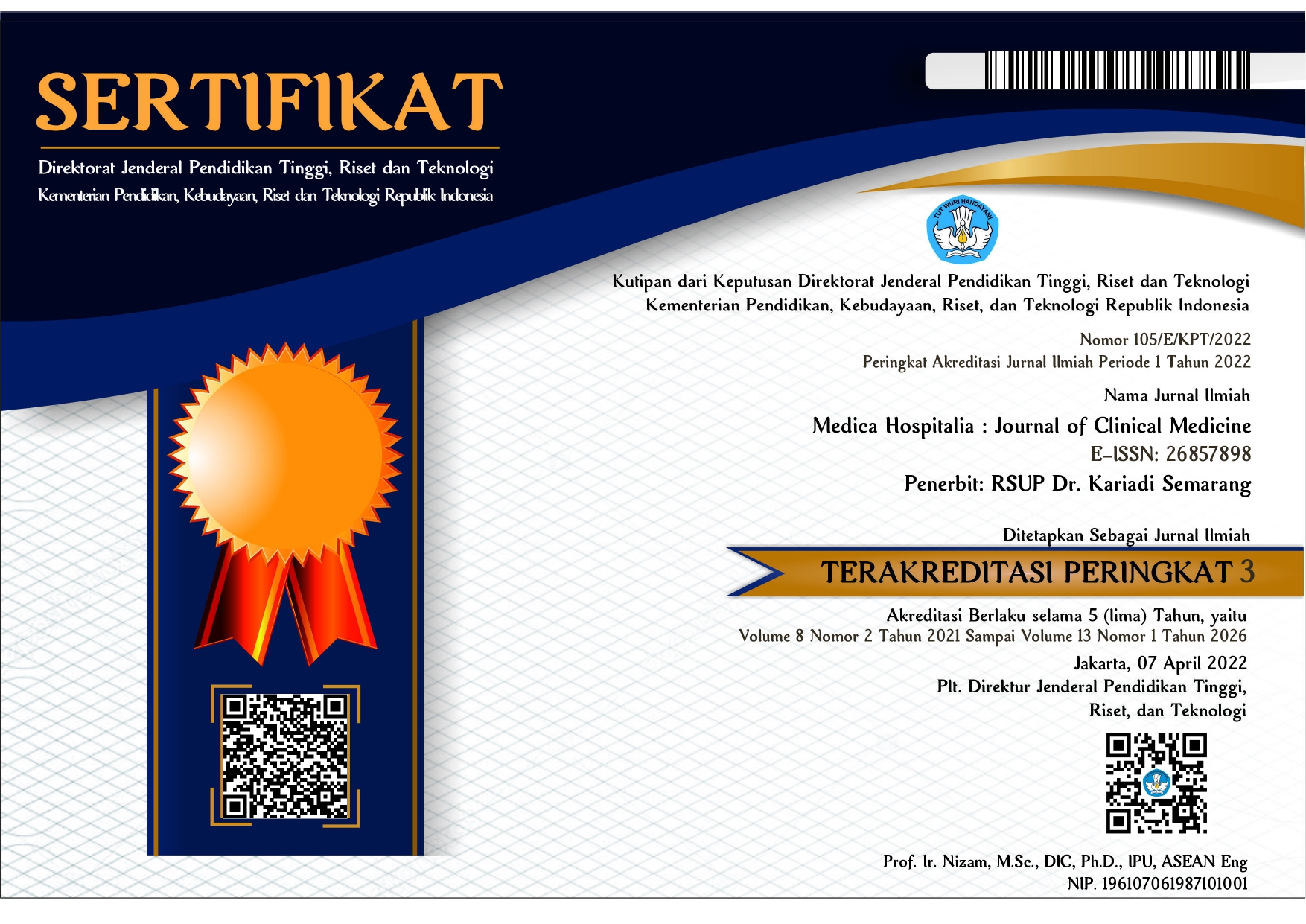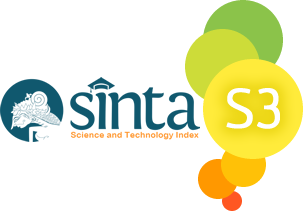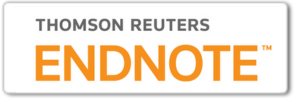The Relationship Between Pre-Operative Clinical Characteristics With Changes In Post-Operative Memory Scores On Temporal Lobe Epilepsy Patient
DOI:
https://doi.org/10.36408/mhjcm.v10i1.844Keywords:
temporal lobe epilepsy, post-operative memory changes, anterior temporal lobectomyAbstract
Background: Most temporal lobe epilepsy (TLE) will become seizure-free after anterior temporal lobectomy (ATL) surgery but often result in cognitive decline, specifically in verbal or visual memory.
Objective: This study examined the relationship between several demographic characteristics and pre-operative clinical conditions with changes in pre-post surgical memory of TLE patients.
Methods: This study used a retrospective cohort in which the subjects were TLE patients who had undergone ATL surgery at Kariadi Hospital or Telogorejo Hospital, Semarang. Demographic variables include the age of onset, duration of illness, level of education, and clinical variables include seizure frequency, EEG waveform, number of AED, lesion site, and IQ score.
Results: Memory re-examination was conducted on TLE patients who had undergone surgery between 2018 and 2021, with 55 subjects who fulfilled the criteria. Characteristics of the subjects were male 31(56%) males, 38% Senior High School education, the mean age of onset was 13,87±6,899, age at surgery was 27,67±9,802, 21 (39%) normal pres-surgical EEG waveform, 31 (56%) lesion on the left and the most frequent seizures occurred in 36 subjects (65%). Statistical test results showed a significant relationship between age of onset and changes in verbal memory recognition scores (p 0.044), lesion side with changes in verbal memory task scores (p 0.018), recall (p 0.005), recognition (0.008), and IQ scores with changes in visual memory construction recall (p 0.041)
Conclusion: Age of onset, lesion side, and IQ score characteristics were related to the changes in memory scores between pre- and post-operative anterior temporal lobectomy in TLE patients.
Downloads
References
- Thijs RD, Surges R, O’Brien TJ, Sander JW. Epilepsy in adults. Lancet. 2019;393(10172):689–701.
- Megiddo I, Colson A, Chisholm D, Dua T, Nandi A, Laxminarayan R. Health and economic benefits of public financing of epilepsy treatment in India: An agent-based simulation model. Epilepsia. 2016;57(3):464–74
- Lamarche F, Job A, Deman P, Bhattacharjee M, Bouvard S, Minotti L, et al. Working memory from the psychological and neurosciences perspectives: A review. Front Psychol. 2015;15(1):1–14.
- Scheffer IE, Berkovic S, Capovilla G, Connolly MB, French J, Guilhoto L, et al. ILAE Position Paper ILAE classification of the epilepsies : Position paper of the ILAE Commission for Classification and Terminology. 2017;512–21.
- Parra-Díaz P, García-Casares N. Memory assessment in patients with temporal lobe epilepsy to predict memory impairment after surgery: a systematic review. Neurol (English Ed. 2019;34(9):596–606
- Bremm FJ, Marc P.H H, Bien CG, Grewe P. Pre- and postoperative verbal memory and executive functioning in frontal versus temporal lobe epilepsy. Epilepsy Behav. 2019;101:106538.
- Breuer LEM, Boon P, Bergmans JWM, Mess WH, Besseling RMH, de Louw A, et al. Cognitive deterioration in adult epilepsy: Does accelerated cognitive ageing exist? Neuroscience and Biobehavioral Reviews. 2016.
- Fiest KM, Sajobi TT, Wiebe S. Epilepsy surgery and meaningful improvements in quality of life: Results from a randomized controlled trial. Epilepsia. 2014;55(6):886–92.
- Dorfer C, Czech T, Aull-Watschinger S, Baumgartner C, Jung R, Kasprian G, et al. Mesial temporal lobe epilepsy: Long-term seizure outcome of patients primarily treated with transsylvian selective amygdalohippocampectomy. J Neurosurg. 2018;129(1):174–81.
- Asadi-Pooya AA, Rostami C. History of surgery for temporal lobe epilepsy. Epilepsy Behav. 2017 May;70(Pt A):57–60.
- Li W, Hao N, Liu W, An D, Yan B, Li J, et al. The experience of the multidisciplinary team in epilepsy management from a resource-limited country. Epilepsia Open. 2019;4(1):85–91.
- 12. Grewe P, Schulz R, Woermann FG, Brandt C, Doll A, Hoppe M, et al. Very long-term outcome in resected and non-resected patients with temporal lobe epilepsy with medial temporal lobe sclerosis: A multiple case-study. Seizure. 2019;67(February 2019):30–7.
- Allone C, Lo Buono V, Corallo F, Pisani LR, Pollicino P, Bramanti P, et al. Neuroimaging and cognitive functions in temporal lobe epilepsy: A review of the literature. J Neurol Sci. 2017;381:7–15.
- West S, Nevitt SJ, Cotton J, Gandhi S, Weston J, Sudan A, et al. Surgery for Epilepsy. Cochrane Databese of Systematic Reviews. 2019, issue 6. Vol .?
- Baxendalle S. Long-Term Cognitive Outcomes After Epilepsy Surgery in Adults. In: Malmgren K et al. (eds.), Long-Term Outcomes of Epilepsy Surgery in Adults and Children. Springer International Publishing Switzerland. 2015
- Witt JA, Coras R, Schramm J, Becker AJ, Elger CE, Blumke I, et al. Relevance of hippocampal integrity for memory outcome after surgical treatment of mesial temporal lobe epilepsy. J Neurol. 2015; 262(10):2214-24.
- Mathon B, Bielle F, Samsosn S, Plaisant O, Dupont S, et all. Predictive factors of long-term outcomes of surgery for mesial temporal lobe epilepsy associated with hippocampal sclerosis. Epilepsia. 2017; **(*):1-13.
- Muttaqin Z, Arifin MT, Andar E, Bakhtiar Y. Simple yet reliable pre-surgical evaluation for TLE in countries with limited resources, based on experience on 450 TLE cases. Int J Epilepsy. 2016;3(1):62
- Allone C, Lo Buono V, Corallo F, Pisani LR, Pollicino P, Bramanti P, et al. Neuroimaging and cognitive functions in temporal lobe epilepsy: A review of the literature. J Neurol Sci. 2017;381:7–15.
- Rzezak P, Guimarães CA, Guerreiro MM, Valente KD. The impact of intelligence on memory and executive functions of children with temporal lobe epilepsy: Methodological concerns with clinical relevance. Eur J Paediatr Neurol. 2017
- Cano-López I, Vázquez-Costa JF, Gutiérrez A, Villanueva V, González-Bono E. Cognitive reserve as a modulating factor in the impact of surgery on visual memory and naming in temporal lobe epilepsy patients. Rev Neurol. 2021 Oct 16;73(8):267-274.
Additional Files
Published
How to Cite
Issue
Section
Citation Check
License
Copyright (c) 2023 Aris Catur Bintoro, Muhammad Thohar Arifin, Harsono Harsono, Zainal Muttaqin, Soeharyo Hadisaputro, Amin Husni, Yuriz Bakhtiar, Vega Karlowe, Joko Pratomo

This work is licensed under a Creative Commons Attribution-ShareAlike 4.0 International License.
Copyrights Notice
Copyrights:
Researchers publishing manuscrips at Medica Hospitalis: Journal of Clinical Medicine agree with regulations as follow:
Copyrights of each article belong to researchers, and it is likewise the patent rights
Researchers admit that Medica Hospitalia: Journal of Clinical Medicine has the right of first publication
Researchers may submit manuscripts separately, manage non exclusive distribution of published manuscripts into other versions (such as: being sent to researchers’ institutional repository, publication in the books, etc), admitting that manuscripts have been firstly published at Medica Hospitalia: Journal of Clinical Medicine
License:
Medica Hospitalia: Journal of Clinical Medicine is disseminated based on provisions of Creative Common Attribution-Share Alike 4.0 Internasional It allows individuals to duplicate and disseminate manuscripts in any formats, to alter, compose and make derivatives of manuscripts for any purpose. You are not allowed to use manuscripts for commercial purposes. You should properly acknowledge, reference links, and state that alterations have been made. You can do so in proper ways, but it does not hint that the licensors support you or your usage.

























